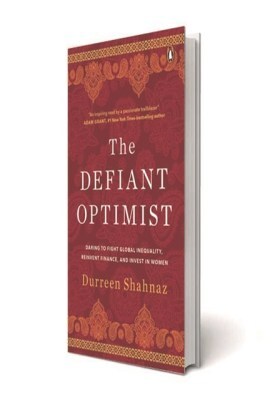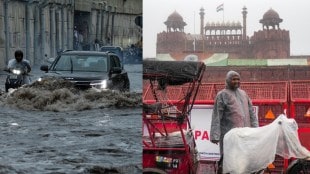By Shivaji Dasgupta
To set the context upfront, Durreen Shahnaz is a Bangladeshi American entrepreneur and educator. She is the founder of Impact Investment Exchange (IIX), a global leader in sustainability and impact investing. But this narrative has much more wealth than merely an inspirational business saga.
Which is why she may well qualify to be a south-Asian role model, for not just the intellectual immigrant but the routine resident too, as she masterfully demonstrates the magical equilibrium of inspiring rootedness and best-in-class ambition, in a compelling context of history and sub-cultures.
She commences her narrative with the intricacies of Nakshi Kantha, a leitmotif of Bangladesh, her home country. The tear-jerking reality of unfulfilled desires resonating in a design credo is both remarkable and sad. As her fascinating story evolves, there is a stark difference though. Unlike the weavers, she manages to fulfill her chosen ambitions through courage and skill.
The gourmet reader will love the effortless forays to the politics of her era, commencing with the Liberation War of Bangladesh, 1971. For present generations accustomed to conceptual conflict, the presence of hostile soldiers at home is an unnerving reality. This episode captures the foundational qualities of surviving a real crisis, no less dramatic than a fictional novel of this genre. Like most south-Asian families, her parents and grandparents are not just side cast, but, indeed, propellers for decisive arguments.
In fact, the triumph of pride over prejudice is the defining aspect of the author’s life and not just this book. Static expectations from a girl child in a conservative society seemingly designed to serve the necessities of man. The ‘ChuraMoni’ saga, her birth at an auspicious juncture, but alas in an inappropriate gender. Quite remarkably, chastisement, meted out by elders in the families, replicated in Wall Street and Silicon Valley, as the deadly duo of coloured and female resulted in ridiculous barriers.
Apart from other abilities, the narrative is a splendid recollection of expatriate, or should I say immigrant, life in the 1980s or so. Her wide-eyed absorption of Manila is so identifiable by generational peers, as the sheer sight of free-spirited ladies indulging in public indulgences was a remarkable exception in that era. This continues wonderfully to her experiences as an interviewee in New York city straight out of Smith College and the entry to the hallowed confines of American financial power.
But let me not digress beyond the necessary. This book is all about the greater good, how impact investing is the provocative future—companies that create measurable positive change in the universe while delivering on profit metrics. Most fascinating is the attitude of the investment ecosystem in this arena, driven by intuitive projection while not committing to genuine change. The liberated West is both villain and hero, as they possess the capacity while being anachronistic in intent.
Most notable is the author’s experience with the World Bank and the innate comparison drawn with the arrogance of Wall Street. The former clearly the platinum player, as revelling in the hubris of being kingmaker to millions of poverty-stricken citizens globally. What is true for East Africa, in her experience, remains valid for most parts of the Global South, as continuing evidence clearly suggests.
Diya and Alliya, her daughters, are equally important characters in this journey, as is husband Rob. She muses eloquently about her experiences with Rob’s family and the travails of bringing up a special child—the extent of her personal experiences are effortlessly intertwined with the professional journey. The book is a pleasing departure from comparable success stories, where troubles are invariably in denial mode. Her experiences are shared between the first world and the third world and each time she emerges in either scenario, the suitably embellished learning curve is walking the talk.

While catering to an undeniably global audience, The Defiant Optimist clearly has impeccable south Asian leanings, the real tale of a genuine impresario, while it captures sensibly the emotions of an entire age cohort, experiencing the bitter truths of survival and embracing the cyanide-laced viagra of development. The twain meets most reluctantly but when it does, the momentum is staggering.
The second plane crash was clearly 9/11 and the damage to Durreen’s sensibilities, as a professional and a Muslim, are amply documented. The first plane crash was a dogfight in the Bangladesh Liberation War, effectively an Indo-Pak military argument. Between the two, the writing is charmingly evocative. If you are a fan of development studies, from a regional-cum-global lens, this work will be suitably thought-provoking. Even if you are not, do embrace this as an exceptional human story, guaranteed to nudge and provoke.
The Defiant Optimist: Daring to Fight Global Inequality, Reinvent Finance, and Invest in Women
Durreen Shahnaz
Penguin Random House
Pp 256, Rs 499
Shivaji Dasgupta is an independent brand consultant and writer









